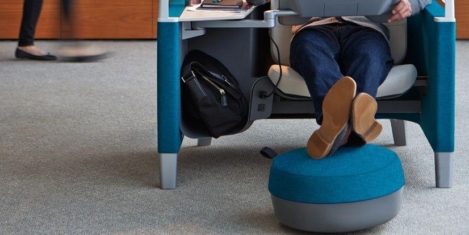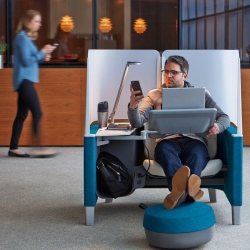To provide the best experiences, we use technologies like cookies to store and/or access device information. Consenting to these technologies will allow us to process data such as browsing behaviour or unique IDs on this site. Not consenting or withdrawing consent, may adversely affect certain features and functions.
The technical storage or access is strictly necessary for the legitimate purpose of enabling the use of a specific service explicitly requested by the subscriber or user, or for the sole purpose of carrying out the transmission of a communication over an electronic communications network.
The technical storage or access is necessary for the legitimate purpose of storing preferences that are not requested by the subscriber or user.
The technical storage or access that is used exclusively for statistical purposes.
The technical storage or access that is used exclusively for anonymous statistical purposes. Without a subpoena, voluntary compliance on the part of your Internet Service Provider, or additional records from a third party, information stored or retrieved for this purpose alone cannot usually be used to identify you.
The technical storage or access is required to create user profiles to send advertising, or to track the user on a website or across several websites for similar marketing purposes.
 Perkbox commissioned a new study of 1,815 employed people to present a examination into the changing landscape of work-related stress in 2020. The study compared results to 2018 data in order to identify how sources of work-related stress and the solutions offered by employers are changing. The study claims that 79 percent of adults in employment commonly experience work-related stress. (more…)
Perkbox commissioned a new study of 1,815 employed people to present a examination into the changing landscape of work-related stress in 2020. The study compared results to 2018 data in order to identify how sources of work-related stress and the solutions offered by employers are changing. The study claims that 79 percent of adults in employment commonly experience work-related stress. (more…)








 New research from
New research from 


 Employers should prepare themselves for a dramatic rise in staff taking shared parental leave, a new
Employers should prepare themselves for a dramatic rise in staff taking shared parental leave, a new 
 Over the last 12 months, seven in 10 UK business leaders witnessed presenteeism, where someone come into the office when they are unwell, a survey has claimed. The issue is particularly prevalent at certain times of the year, recruitment firm
Over the last 12 months, seven in 10 UK business leaders witnessed presenteeism, where someone come into the office when they are unwell, a survey has claimed. The issue is particularly prevalent at certain times of the year, recruitment firm 




















March 19, 2020
Will coronavirus mean the death of the office?
by Mark Eltringham • Comment